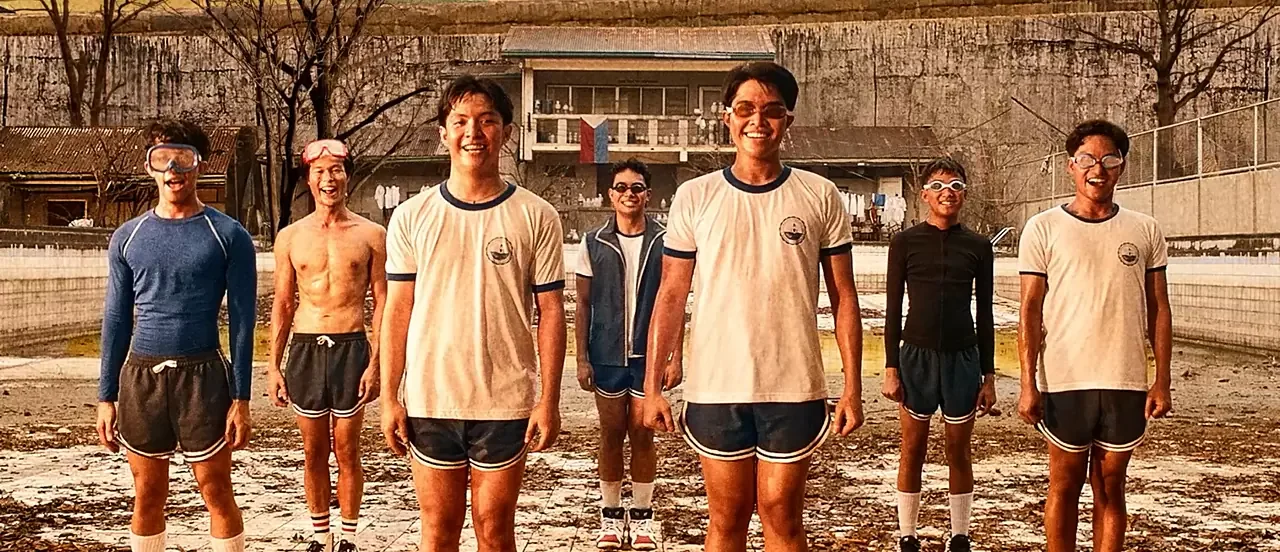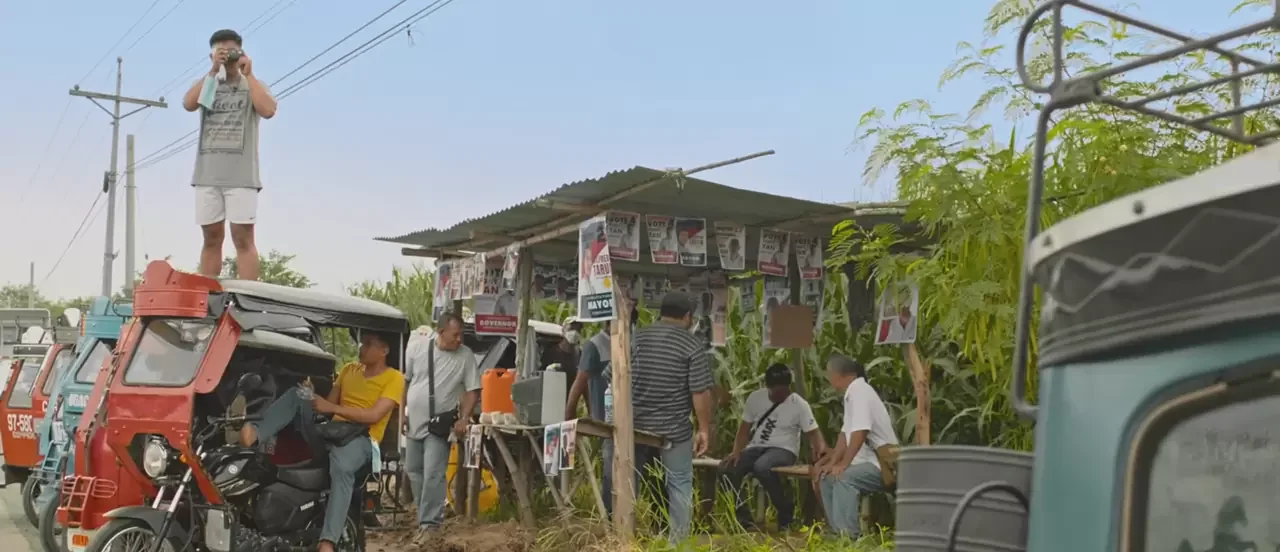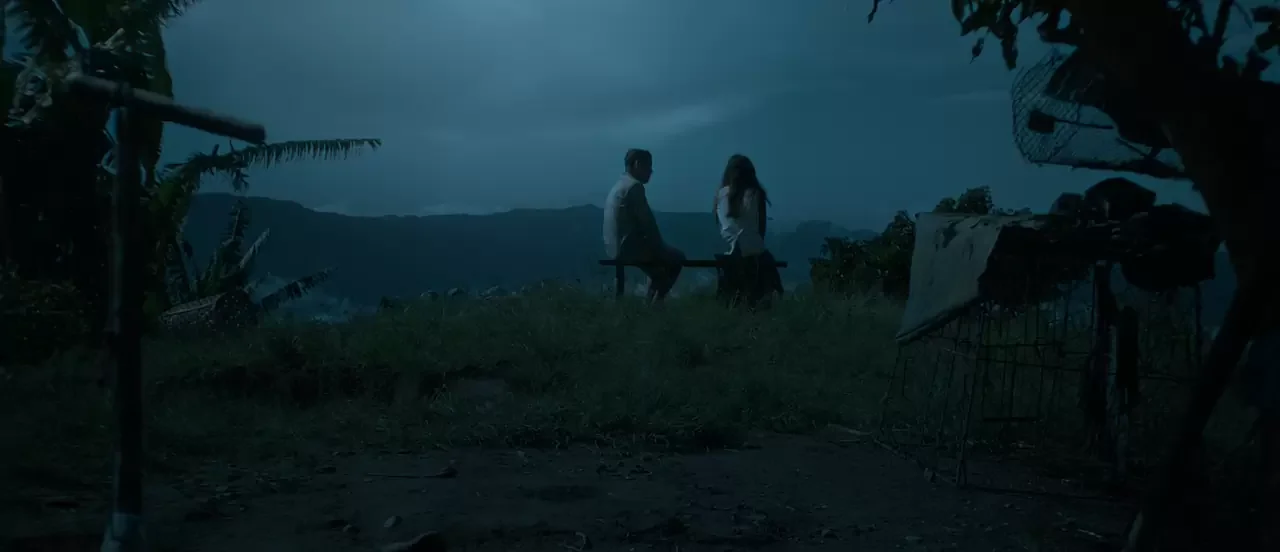‘KinoFest Special 2025: Stories Across Continents’ PROGRAM REVIEW
‘KinoFest Special 2025: Stories Across Continents’ PROGRAM REVIEW
Official logo of Kino Fest: The German Film Festival by Goethe-Institut Philippinen
The climate crisis has become more than just a political issue, but it continuously evolves as it now invades personal and intimate spaces. Concepts of identity, memory, and grief have now become intertwined with the climate crisis, resulting from the recurring degradation of the environment. With that, the environment serves more than just a backdrop, but now as a reflection and disruption of contestable personal and political beliefs.
Programmed by Eunice Helera, KinoFest Special 2025 Stories Across Continents aims to explore the climate crisis as an intersectional concept. Seeing it is more than just the destruction of nature, but an embedded ongoing conversation with the personal and political ties.
Film still from Water Sports
Water Sports
Dir. Whammy Alcazaren
The film program opens with Whammy Alcazaren’s Water Sports. Already setting the tone for what to expect in the program, the climate crisis is positioned as antagonistic to the characters' love, as the world is coming to an end. Climate change and incompetent government solutions serve as a trial of endurance of how their love will last before the heat takes them out. The end of the world is presented as inevitable, but love is worth every last moment.
Film still from Ngatta Naddaki y Nuang?
Ngatta Naddaki y Nuang?
Dir. Austin Tan
Austin Tan’s Ngatta Naddaki y Nuang? tackles the intersection between the environment and grief through the lamentation of the missing carabaos in their community. The loss of carabaos is more than biodiversity loss, but it is connected to a broader issue of how development aggression leads to the erasure and displacement of life and communities. The act of finding carabaos allows the characters and the community to rekindle grief and trace old memories after the tragedy.
Film still from Sa Ilalum sa Balabal sa Alitaptap
Sa Ilalum sa Balabal sa Alitaptap
Dir. Juvy Ann Clarito
Juvy Ann Clarito’s Sa Ilalum sa Balabal sa Alitaptap invokes myths as a woman’s resistance to land grabbing as it takes form in necessary violence. She drew her strength from her personal and familial connection to the land where she was raised. She acts rather than passively observes and lets it unfold, and if the land does not devour the greedy, then justice must be taken into the hands of those who have suffered the most.
Film still from Rumbles of the Earth
Rumbles of the Earth
Dir. Carl Joseph Lara
Carl Joseph Lara’s Rumbles of the Earth reimagines the recurring earthquakes with the culture of impunity that blurs fantasy and reality, as it is now normalized as the bigger narrative. A child’s innocence and her search for her mother amidst the political situation, by changing the laws of nature, mirrors the contemporary social reality ever present. The sudden disappearances and the natural disasters are among those that just seem normal now.
Film still from Baradiya
Baradiya
Dir. Gab Mejia
Closing the film program is Gab Mejia’s Baradiya. Tracing back to the origins of the babaylan as contemporary and colonial beliefs suppress cultural roots and ancestry, as their gender and identity are challenged. Suppressing their identity is reminiscent of being presented as colonial monstrosities, which means allowing them to be demonized for being different in contemporary times and delimiting their role. Through embracing her identity, can she remind herself of being the babaylan and her role as an environmental defender of their land.
Overall, the film program ties together diverse and unique perspectives and interpretations of the climate crisis. Bridging ideas of love against a dying world, or navigating grief in the aftermath of development aggression, or justifying violence rooted in their connection to the land, or reimagining natural disasters to normalize narratives of impunity, or reclaiming cultural identities. Rather than offering only contemporary narratives, it also explores cultural and historical ties of the environment to the self, community, and cultures that continuously evolve in different contexts. It envisions a world in which the environment has become an integral part of life, looking beyond the anthropocentric lens. It doesn’t hold back the potentialities of possible future conversations; it will bring up how the climate crisis has intersected with one’s personal and political space. Yet, these intersecting beliefs presented can act as an urgency, as intimate spaces are now too late to be reclaimed.
There is only one planet Earth, and it has already intertwined with everyday life as it now struggles, disrupts, and discomforts social realities.
KinoFest: The German Film Festival 2025 will run from October 16-19, 2025, at Shangri-La Plaza Red Carpet Cinemas. KinoFest Special 2025 will be screened on October 18.























